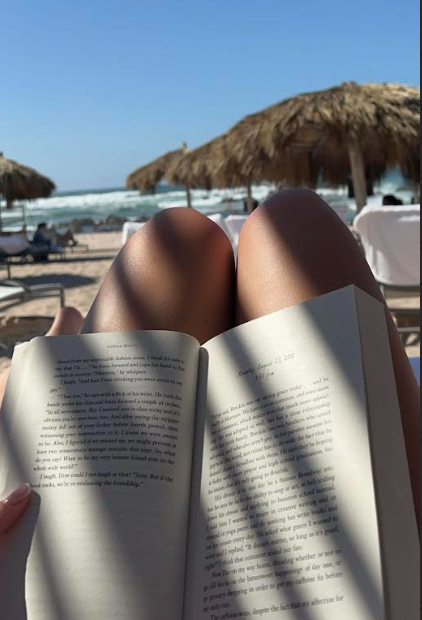Even as a freshman, I had already begun to dread junior year. Though it was still two years away, I had heard all the horror stories from upperclassmen, my older brothers, and even my parents. Junior year was supposed to be the hardest year of high school. What made it so terrifying? I’ll break it down simply: I was going to be transitioning from honor classes to AP classes and from spending my free time watching shows and hanging out with friends to using that time to study for the ACT. If you ask me—or any other student in my shoes—we are all counting down the days until junior year ends. So when summer finally came, the summer before the most intense year of academic life, all I wanted was a break. I needed time to breathe, to recharge, to step away from constant pressure so I could return to school with a clear, refreshed mind, but I didn’t get that chance. I know junior year isn’t going to be easy. I am prepared to push myself harder than ever, but before all that, I just wanted one thing: a real summer break.
Instead, here’s what my “break” actually looked like. I decided that before I graduate high school, I must land a job. After weighing my options—lifeguard, barista, camp counselor— I went with a counselor, like most kids my age. What I didn’t realize? Working eight hours actually feels like working eight hours. I began work at 8:15 a.m. and finished at 4:15 p.m chasing after four-year-olds who thought running in circles was an Olympic sport. Even with an iced coffee the size of my head, I was wiped. Yet, I knocked some sense into myself to hit the gym because I was not planning on being unproductive during the summer. I wrapped up with the gym around 6:30 p.m., which left me approximately three hours to shower, eat, practice for the ACT, and plow through the summer assignments due on the first day of school. So unfortunately, my idealistic summer — consisting of sleeping in, tanning by the pool, and spending every possible moment with my friends—wasn’t going to go how I imagined.
That’s the problem with summer work. Summer is supposed to be the one season where the only assignment is finishing a popsicle before it melts. After nine months of in-class essays, science labs, math tests, and history projects, shouldn’t we get a little peace? Instead, we’re expected to lug The Grapes of Wrath to the beach. Don’t get me wrong, I actually do like reading and writing, but there’s a time and a place. I enjoy reading at the beach, sure—but preferably something that doesn’t involve dust storms and economic despair. Steinbeck, no hate to your novel—it was great—but it’s just not the book I necessarily wanted to read over the summer in my free time.
The whole idea of summer work feels backwards. During the school year, teachers remind us that rest matters, that breaks actually help our brain recharge, but the second June rolls around, that advice goes out the window. Suddenly we’re told to spend our “vacation” doing the exact same thing we’ve been doing all year. That’s not a break—its just school without the bell schedule. It’s kind of like telling someone to take a nap, then shoving them onto a treadmill while they sleep. And let’s be real here: do schools honestly think we’re going to forget how to read, how to study, or how to write an essay in two months? My brain isn’t going to suddenly delete the alphabet in July and August. I’ve been writing essays since middle school, and I promise I’ll still know how to write one in September.
Students already have enough on their plates during the summer without being weighed down by extra schoolwork. Juniors spend their break preparing for the ACT and SAT, and summer is the only time they can truly focus on test prep without the added stress of school assignments. Seniors, on the other hand, are consumed with college applications, writing essay after essay for each school they hope to attend. Many students are also balancing jobs, sports, and other responsibilities. With so much already demanding their time and energy, adding summer assignments only creates unnecessary stress. Instead of helping students succeed, it takes away valuable time they could be using to prepare for their future.
We’ve learned enough during the school year. Math questions can be practiced in class, history can be discussed when we can actually ask questions instead of skimming timelines alone, and scientific experiments can be done in the lab, not imagined from a packet at home. Summer doesn’t need to be another marking period; it just needs to be a real break. The irony is that teachers believe summer work is meant to prepare us for the school year, but in reality, it just leaves us tired before it even starts. Teachers want us to come back refreshed, motivated, and ready to learn. That can only happen if summer is what it’s supposed to be: a pause, a reset, a chance to enjoy being a teenager before the chaos begins again. And speaking of chaos, starting school in August only makes the need for a real summer even more obvious, but that’s a whole other piece waiting to be written.















































































































































